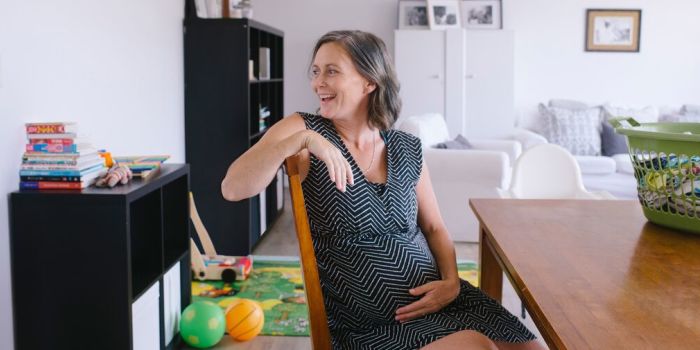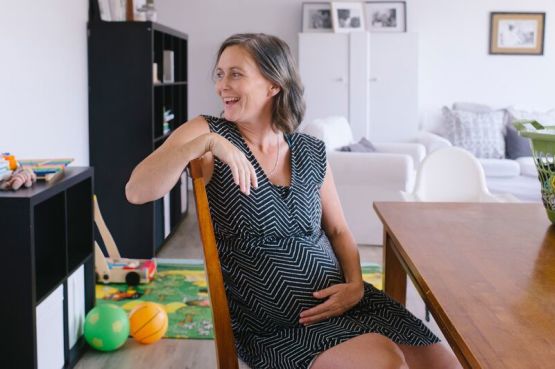Discover
Planning for pregnancy: what to expect

When should I start planning to get pregnant?
If you’re trying to get pregnant, the decision about the best time to try for a baby will be very personal to you. However, it’s important to bear in mind that the risks of pregnancy increase over the age of 35. It also gets harder to get pregnant as you get older. You may want to speak to a GP or fertility clinic for advice.
If you are using contraception, you may need to plan when to stop depending on which method you use.
- If you use a barrier method, such as condoms or a diaphragm, you can stop and start trying for a baby whenever you’re ready.
- If you’re taking a combined contraceptive pill, ideally finish the pack you’re on. It can help to wait to start trying for a baby until you’ve had one normal period. This is because it’s easier to work out how many weeks pregnant you are. If you’re taking a progesterone-only pill, you can stop at any time – you don’t need to finish the pack you’re on.
- If you have a coil or a hormone implant, you’ll need to have it taken out. Your fertility should return to its usual level quite quickly. But it’s best to wait until you’ve had a normal period before getting pregnant.
- If you’ve been having contraceptive injections, your periods and fertility can take longer to return to normal. This can be up to a year but isn’t always the case.
If you’ve just had a pregnancy, research suggests it’s best to wait at least 12 to 18 months before becoming pregnant again. A too short gap can affect the health of you and your baby. This is particularly important if you’ve previously had a caesarean section. If you do fall pregnant within a year of giving birth, don’t worry. Talk to your midwife or GP if you have any concerns. You may be referred for an early appointment with the obstetric team to check the health of you and your baby.
When is the best time to conceive?
If you’re trying to conceive via sexual intercourse with a partner, your best chance is to have sex every two to three days throughout your cycle. If you’re having artificial insemination (when sperm is inserted into the womb) to conceive, this should be timed around when you’re ovulating. Ovulation is when an egg is released from one of your ovaries, usually around 10 to 16 days before the start of your next period.
You can get to know when you're ovulating by keeping track of changes to your cervical mucus (discharge). Or you can use an ovulation predictor kit or monitoring device. But there’s no problem if you don’t do this – trying to time this exactly might make you feel stressed. It’s best to avoid any stress as this can affect ovulation.
How long does it take to get pregnant?
About 8 out of 10 women under the age of 40 will conceive within a year of having regular, unprotected sex. Of those who don’t get pregnant in the first year, about half will get pregnant in the second year of trying.
Around half of women under the age of 40 will get pregnant within six cycles of artificial insemination. Of those who don’t get pregnant within six cycles, half will do within a further six cycles.
If you haven’t become pregnant after a year of having regular, unprotected sex or after six cycles of artificial insemination, see your GP. If you have a partner, they should go too. Your GP may offer you and your partner an assessment and investigations to see if there’s any reason why you haven’t conceived.
How can I become healthy for pregnancy?
Making sure you’re as healthy as possible when you start trying to conceive can really have an impact on your baby. Below are important things to consider.
Your weight
Being overweight can reduce your fertility. Being overweight or obese is linked to miscarriage, diabetes in pregnancy, blood pressure problems and development problems in your baby. Being underweight can also reduce your fertility and lead to complications during pregnancy. Find out more about healthy weight for adults.
Your diet
There isn’t any special diet you need to eat if you’re trying to get pregnant. It’s good to follow a healthy, balanced diet with fruit, vegetables, and dairy products. This way, you get enough vitamins, iron, and calcium. Taking daily folic acid and vitamin D supplements before pregnancy can also be beneficial to your baby.
Exercise
Gentle exercise should be safe to do. Exercise can also help you keep to a healthy weight.
Stopping smoking
If you smoke or have a partner who does, quitting before pregnancy can help to increase your chances of getting pregnant. Smoking is linked to reduced ovulation and problems with sperm quality. It’s best to stop smoking altogether if you’re planning to have a baby. If you do smoke when you’re pregnant, it can affect your baby’s development, as well as damage your own health. Most maternity units have midwives who specialise in supporting women and partners with stopping smoking.
Avoid alcohol
Alcohol can harm your baby and the more you drink, the greater the risks. It’s safest if you don’t drink alcohol at all while you’re trying to get pregnant and throughout your pregnancy. But if you do drink, try not to go over 1 or 2 units per day.
Stopping recreational drug use
Drugs such as cocaine or cannabis can cause serious health and development problems for your baby. You should stop using these if you plan to have a baby.
If you need support with getting healthier and with quitting smoking, alcohol and drug use, speak to your GP or midwife. You should talk to your GP about any medical conditions you have (including mental health conditions) and medicines you’re taking.
You should also tell your GP about any genetic conditions you have and check what immunisations you might need. If you are trying to conceive with a partner, they should also make healthy changes such as stopping smoking, avoiding alcohol and keeping to a healthy weight.
Here at Bupa we understand how important your family is. So with our family health insurance you can rest assured knowing that eligible treatment and support is available to you and your loved ones when you need it.
About our health information
At Bupa we produce a wealth of free health information for you and your family. This is because we believe that trustworthy information is essential in helping you make better decisions about your health and wellbeing.
Our information has been awarded the PIF TICK for trustworthy health information. It also follows the principles of the The Information Standard.

More discover articles...
Did you find our advice helpful?
We’d love to hear what you think. Our short survey takes just a few minutes to complete and helps us to keep improving our healthy lifestyle articles.
Legal disclaimer
This information was published by Bupa's Health Content Team and is based on reputable sources of medical evidence. It has been reviewed by appropriate medical or clinical professionals and deemed accurate on the date of review. Photos are only for illustrative purposes and do not reflect every presentation of a condition.
Any information about a treatment or procedure is generic, and does not necessarily describe that treatment or procedure as delivered by Bupa or its associated providers.
The information contained on this page and in any third party websites referred to on this page is not intended nor implied to be a substitute for professional medical advice nor is it intended to be for medical diagnosis or treatment. Third party websites are not owned or controlled by Bupa and any individual may be able to access and post messages on them. Bupa is not responsible for the content or availability of these third party websites. We do not accept advertising on this page.





